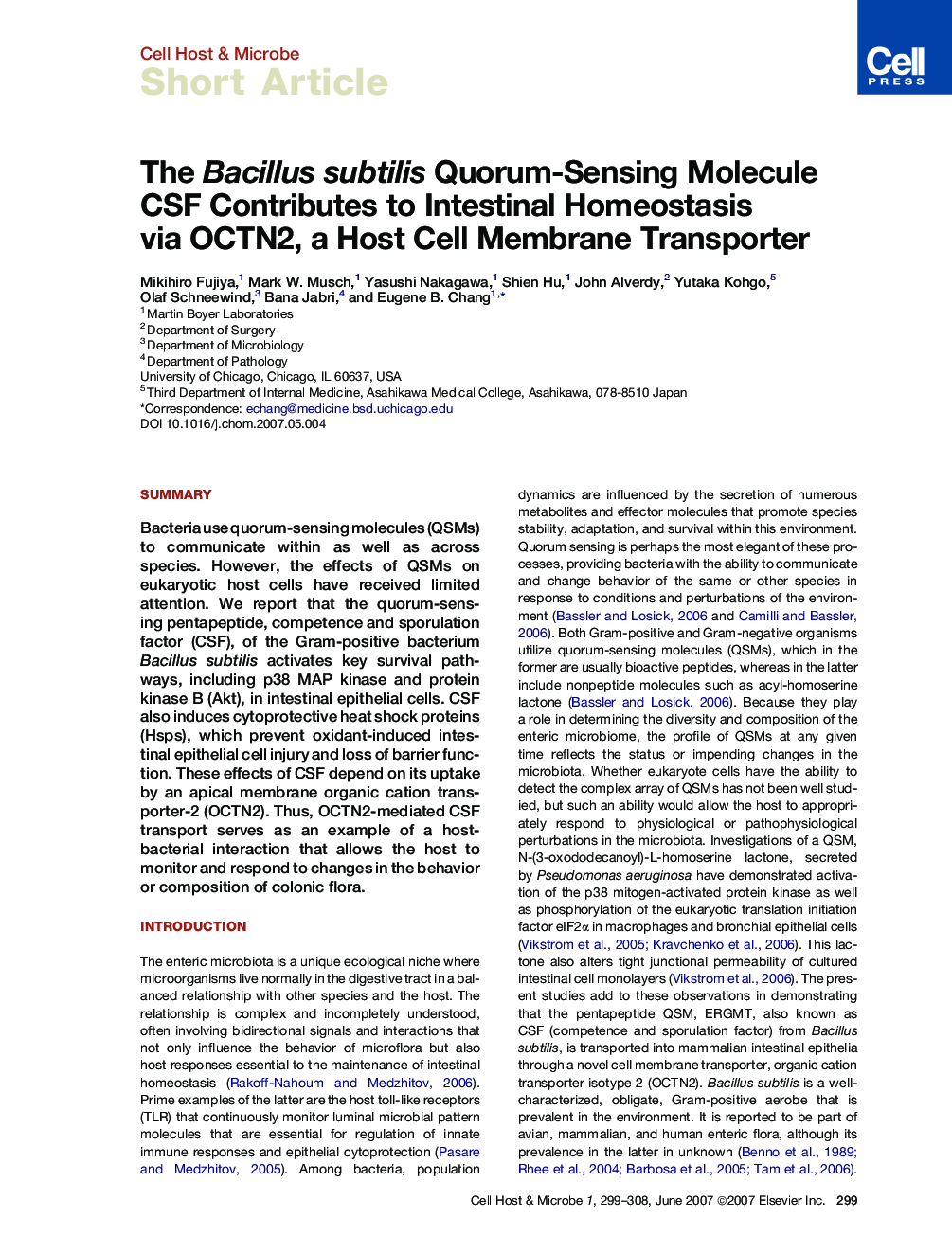| Article ID | Journal | Published Year | Pages | File Type |
|---|---|---|---|---|
| 4361684 | Cell Host & Microbe | 2007 | 10 Pages |
SummaryBacteria use quorum-sensing molecules (QSMs) to communicate within as well as across species. However, the effects of QSMs on eukaryotic host cells have received limited attention. We report that the quorum-sensing pentapeptide, competence and sporulation factor (CSF), of the Gram-positive bacterium Bacillus subtilis activates key survival pathways, including p38 MAP kinase and protein kinase B (Akt), in intestinal epithelial cells. CSF also induces cytoprotective heat shock proteins (Hsps), which prevent oxidant-induced intestinal epithelial cell injury and loss of barrier function. These effects of CSF depend on its uptake by an apical membrane organic cation transporter-2 (OCTN2). Thus, OCTN2-mediated CSF transport serves as an example of a host-bacterial interaction that allows the host to monitor and respond to changes in the behavior or composition of colonic flora.
